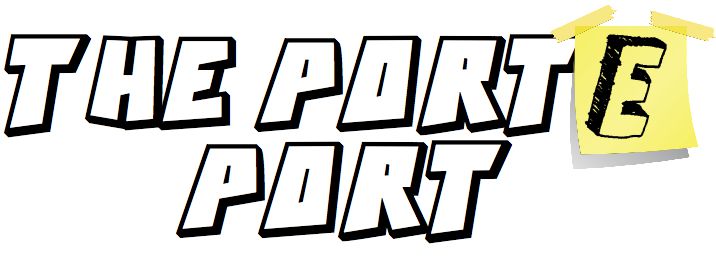Writing Deep Character Bonds: Character Analysis of Jean-Luc Picard
What’s important to you?
What drives you?
What philosophies have played into your life?
Super easy questions, right?
We can make it simple. Let’s start with things we like.
I like camping, craft beer, fishing (usually associated with the aforementioned camping), Lord of the Rings (duh), and RPG games, both digital and with 20 sided dice.
Then all I need to do is ask why I like these things.
Camping because I love nature, and it reminds me of family trips as a kid.
Fishing because it’s relaxing, with moments of excitement, and reminds me of time with my dad.
Lord of the Rings because it has captured my imagination and got me into writing seriously. Also introduced to me by my dad.
RPG games because I love to feel like I’m on an adventure.
So what does this all mean?
That I have daddy issues? Yeah probably. I just watched Big Fish again, holy shit, wrecked every time.
But I’m bonded to things that I remember fondly from childhood. I look forward to what’s next like I’m on an adventure. And, despite the constant reminders in the world, I hold on to the hope that good ultimately wins out (but it will be a hard, sacrificial fight). It’s naive, but it’s part of who I am.
Now, why the hell am I digging so deep into some way too heavy stuff when you just want to talk about Star Trek storytelling techniques?
Because these are the questions that you should be asking your characters.
What’s important to them?
What drives them?
What philosophies have played into their lives?
The key is remembering these don’t necessarily have to do with the goals of the plot. In fact, the more that they don’t, the more depth your character has. They should feel like a living human being that has a life outside of this particular story.
And it helps add layers of themes into your story too.
So, finally, let’s talk Star Trek to show you what I mean.
Captain Picard and Writing a Character Background
I keep returning to Star Trek because of one character: Jean-Luc Picard. His complexity and philosophies are what make him such a dynamic character.
No, I still haven’t watched the Picard show, I know, I know.
But let’s go back to Star Trek: Generations. This isn’t exactly hailed as one of the best Star Trek movies of all time, but it captivates me for some reason. There’s a depth to Picard’s character that can help us write better characters too.
The plot itself is your typical sci-fi fare. A guy is trying to blow up a star, and that doesn’t exactly bode well for the people living on a planet orbiting it. You know how it is.
And he’s so happy about it!
This bad guy, Soran (Malcolm McDowell), becomes a dark mirror of Picard, and that’s where the story starts getting interesting.
Spoilers for a Star Trek movie from 1994 that you literally won’t watch now if you haven’t already.
The most famous storyline from the Next Generation show was Picard getting assimilated by the Borg. I won’t go into a geeky rambling explanation of that here, but it ends with an episode about his family.
The Picards live on their old family vineyard in France. Jean-Luc’s brother has always held a grudge against him for flying off into the stars on some damn idealistic crusade. Wait…
But Jean-Luc’s brother has a son who also looks up to the stars, wondering what’s out there.
By the end, they get over their differences and love each other for the family that they are.
It’s touching. We see Jean-Luc bonded to his family, knowing the Picards will always continue, leaving a legacy after he is gone.
Until his family brutally burns to death in a fire, off-screen no less, at the beginning of Star Trek: Generations.
Now Picard not only has to grieve the loss of his family, but he is the last of his bloodline.
Kind of a weight on him during the movie.
This doesn’t have something to do with the end goal of the plot directly. Soran didn’t start that fire or some crazy shit. This is just something that is on Picard’s mind as we go through the story.
So who cares, right?
Well, Soran’s species is super in tune with emotions and have limited telepathy. So, he manipulates Picard because he knows he’s grieving.
He even uses the term “fire” to get his point across. This is actually before we even realize what Picard is grieving about. It’s extraordinarily subtle and an excellent piece of writing in a movie with bi-polar levels of writing quality.
Here’s the scene, so you understand what I mean:
You can see how Picard reacts to Soran turning the knife with his words.
Soran has lost his family too and is desperate to get them back. His plan to blow up a star moves a space phenomenon on a trajectory where he can hop on inside it. That phenomenon lets you live out whatever joy your brain wants.
Eventually, Picard finds himself in this phenomenon, known as the Nexus. Not only does he have the family he lost back, but has what he really is struggling with: a wife and children of his own.
I actually wish the movie spent more time developing the inside of the Nexus more. I would love to see more of a struggle for Picard to overcome this fake reality.
That’s because Picard’s bonds are being challenged in all directions. Remember those questions earlier?
What does he want in life?
Is the philosophy to explore the stars still something he believes in after losing all ties to home?
Will he play in this make-believe reality to have something that’s impossible in real life, or will he choose the family that he has discovered new worlds with?
And they are kinda in trouble, so make a decision man
That’s what makes the story interesting. This give and take. This feeling of regret and wishing things could go back, but knowing there is a real future waiting for him in the real world.
Our bonds in life are earned. You can’t fake it, you can’t go back, you can only grow with the events that happened to us.
Picard is willing to let all of that go, knowing it isn’t real.
Soran is willing to destroy the real because he can’t let it go.
In the end, Picard has one of my favorite lines of all time as he realizes something new with his character bonds:
“Someone once told me that time was a predator that stalked us all our lives. But I rather believe than time is a companion who goes with us on the journey, and reminds us to cherish every moment because they’ll never come again. What we leave behind is not as important as how we lived.”
Would he go back and sacrifice everything about himself for one thing he doesn’t have? No. And so the movie is about who Picard is rather than the star getting blown up.
Creating Character Depth in Your Story
So who are your characters?
What do they like?
Why do they like those things?
Find out what they are bonded to. What they regret. What they are unwilling to sacrifice.
Creating this character depth is the key to making a story more interesting. You can have a run of the mill plot, but if your characters have depth, now you have something far more interesting.
And this is because it’s the characters that provide the window we look through to experience the story. We bond with them, and along the way, find out something about ourselves.
We want to know if someone can come through terrible situations.
Can they become something more than they are now?
Can they resist losing all they earned?
Will they understand themselves more at the end of all this?
Because what we are really asking is: who are we?
Help your reader discover the answer to that by finding out what your character bonds to.
If you want to get even geekier with the writing advice, join my newsletter. It’s an e-course that dives into our favorite movies, shows, books, and games to see what storytelling techniques they use. Then, we will write better stories ourselves. Check it out:









